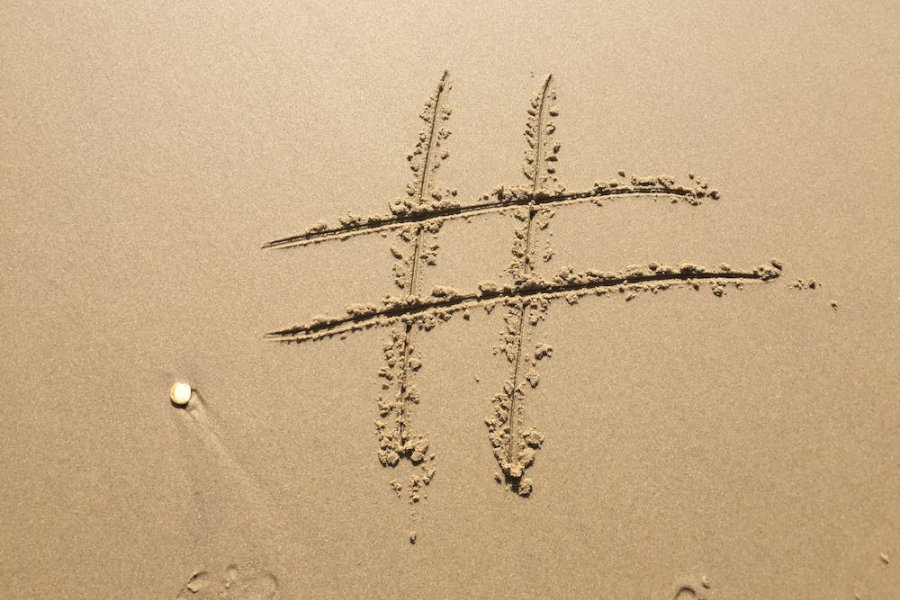#Hashtag: Facebook Hashtags and Hashtagging 101


Facebook recently announced official hashtag support, with clickable hashtags and new hashtag feeds. With all major social media networks now utilizing hashtags, hashtag marketing can take deeper roots.
The company says that it will "continue to roll out more features in the coming weeks and months, including trending hashtags and deeper insights, that help people discover more of the world's conversations."
While Facebook continues to develop their hashtagging system, we can take a moment to figure out exactly what hashtags mean for Facebook and social media users.
What the #### Are Hashtags?
Hashtags are a number/pound sign (#) followed by a keyword or phrase. It has been popularly used by television networks, positioning hashtags in a watermark on the lower right hand side of the screen for new shows. Hashtags have also been prevalent in television commercials and print media applications.
Hashtags are by no means a Facebook innovation. Almost all the other major social media networks, including Twitter, Tumblr, Instagram, Pinterest, YouTube, LinkedIn, etc. all have implemented hashtags over the years.
Hashtags are a great way for users to engage social communities, participate in popular trends, and find new users or content. Hashtags are most commonly used to identify topics within posted content. For example, if you created a post about a new kitchen remodeling project, you could add "#remodeling" to the middle or end of your content. It adds context to your post, and allows it to be more easily searched. Ultimately, it means that users can search or click on a hashtag to see what people are saying about a specific event or subject matter.
The #Good, the #Bad, and the #Ugly of Hashtags
The Good - Hashtags are a great way to get your content out to folks who aren't already a part of your social media network. By participating in a hashtag, your social media posts are available for others to search for. Usually, by searching for or selecting a hashtag you see on any social network, you will be able to see all other content posted by others who use the same hashtag. It allows users to find new content and new content creators for specific topics of interest. So that's good, right?
The Bad - That's where things take a turn. Just as hashtags can help users to discover you and your content, they could also send users AWAY from your content. This is inherent in this system, and it is an acceptable risk. The best way to try to capture as many users as possible before they leave for the next article or post is to have creative, strong content that people won't want to navigate away from.
The Ugly - People know that hashtags are a great way to get discovered by new users. Just like the black hat SEO tactics of old, overzealous users pile on the hashtags or hijack a trending hashtag to try to get attention. This type of behavior is spammy, won't be an effective campaign in the long term, and ALWAYS looks bad. For example, if you were participating the Twitter' #FathersDay, you probably wouldn't want to see posts about saving money on your next mani/pedi.
Why Use Hashtags?
Hashtags are great for cashing in on viral content. As long as the hashtag is related to your field, you can participate in trending tags with great benefit. If you're prone to overselling instead of interacting on your social media accounts, participating in a fun hashtag is a great way to add entertaining content to your feed and step away from being a selling machine. In the best instances, very creative content that is discovered by hashtag searching can also go viral, earning you some needed retweets's, favorites, likes, or shares, all of which adds to your social media and online street cred.
Hashtags can be used to track marketing campaigns as well. Usually performed by larger companies, hashtags are added to other marketing efforts like commercial and print materials, in an attempt to get people talking. Beware, hashtags can get hijacked and turned against you. Most popularly, @McDonalds #McDStories on Twitter took a negative turn when users took to the social network to talk about bad restaurant experiences.
Departing Hashtag Tips and Talk
Don't abuse the hashtag. #Not #Every #Word #Needs #A #Hashtag. #LongSentencesBecomeMeaningHashtags. Only use hashtags that are relevant to your post. And just like all social media posts, be sure that your content is creative, interesting, and engaging. Hashtags will only help to augment strong content, not create it.
While hashtags work incredibly well on Twitter and other services, it is yet to be seen whether Facebook Hashtags will be adopted by their notoriously resistant community. We'll be keeping an eye on Facebook Hashtags, and think you should do the same.

About Chris Lonergan
Chris Lonergan has over 12 years of contractor marketing experience with Footbridge Media. With a background in web design, print design, content creation, and online marketing, Chris is focused on providing quality marketing and business solutions in the construction and service industries - helping small business owners to more efficiently manage their company and grow their operations.





